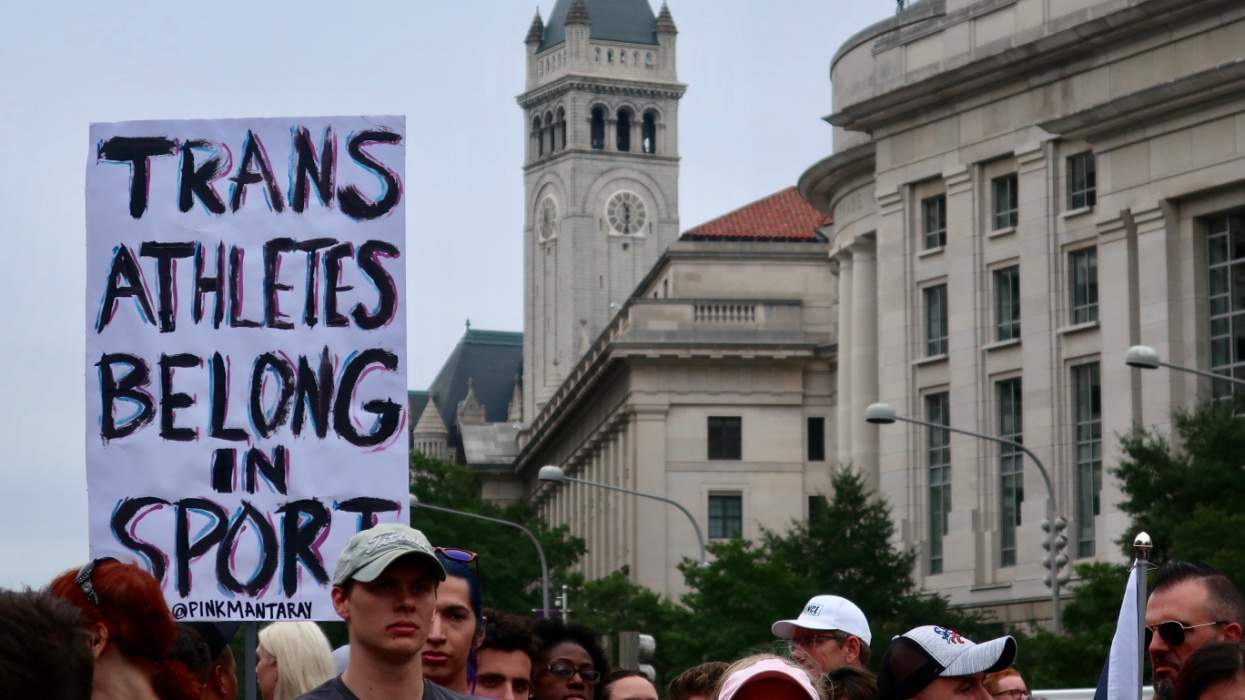The now-iconic photo of a man shoving a woman off the course during the 1967 Boston Marathon is jarring to look at in 2017, even amid nearly weekly attacks on women's rights under the Trump Administration. But the photo of Kathrine Switzer, then a 20-year-old Syracuse University journalism student who became the first woman to ever register for what was at the time was considered a men-only competition, is a sign of hope and progress. On Monday, 50 years after the race codirector Jock Semple shoved her on the course shouting, "Get the hell out my race and give me that number (referring to her bib number), Switzer ran the Boston Marathon again as an honorary starter for the women's elite race, Jezebel reports.
For this year's marathon, Switzer was joined by the women of 261 Fearless, a nonprofit named in honor of the number on her 1967 bib, which the race codirector famously screamed at her to remove, according to Switzer's website.
261 Fearless's is "a global supportive community which empowers women to connect and take control of their lives through the freedom gained by running. Through a series of non-competitive running clubs and private communication channels, we provide networking, healthy running support and education, and a sisterhood to women all over the world," according to its website.
In 1967, when Switzer, her then-boyfriend Tom Miller, and coach Arnie Briggs ran the Boston Marathon together (Miller is pictured shoving Semple out of the way in the famed photo), the Amateur Athletic Union, which governed amateur running at the time, did not allow women to compete in long-distance races. The longest race for women in the Olympics at the time was the 800-meter race, according to a feature on Switzer on Deadspin. The accepted thinking at the time was that women's bodies could not endure the punishing 26.2 miles of a marathon. The hysterical fear of the men who made the rules at the time was that women's uteri could fall out or that they would become too masculine and grow hair on their chests, according to the Deadspin piece.
The year prior to Switzer's historic run in the 1967 marathon, another woman, Roberta (Bobbi) Bingay Gibb, unofficially ran and finished the race without the race organizers becoming involved. Switzer has maintained that it was because she used her initials "K.V." to register and because she was able to obtain her bib number that the race directors became infuriated.
"This wasn't just about me being a girl," Switzer has said, as reported by Deadspin. "Jock probably would have left me alone if I was just running along like Bobbi. It was the number that got him. I had made him look like a fool."
Semple, the man who shoved Switzer, disqualified her, and the Amateur Athletic Union banned her and Miller from registering. Following the race, Switzer remained and avid, competitive runner, and she now has 39 marathons under her belt. She returned to the Boston Marathon in 1975 to place second among women. The year before, she placed first among women in the New York City Marathon, according to Jezebel. She has become a feminist icon to women in sports.
Switzer's attempt to officially finish the Boston Marathon in the late 1960s predated Title IX, a watershed gender-equality law that opened up interscholastic sports to women. But her drive to help usher women into the 20th and 21st centuries in their running shoes didn't end there. She went on to found the Avon International Running Circuit, a series of women-only races in 27 countries, according to CNN.
Switzer also became an author and a TV commentator for the Olympics, which opened up the marathon to women in 1984, CNN reports.
In honor of Switzer and her advocacy around women and running, her 1967 bib number, 261, has been retired.
"Running my 50th anniversary, I'm very lucky that physically I can undertake it. It is going to be a joyful celebration," said told WBZ TV in Boston.
















